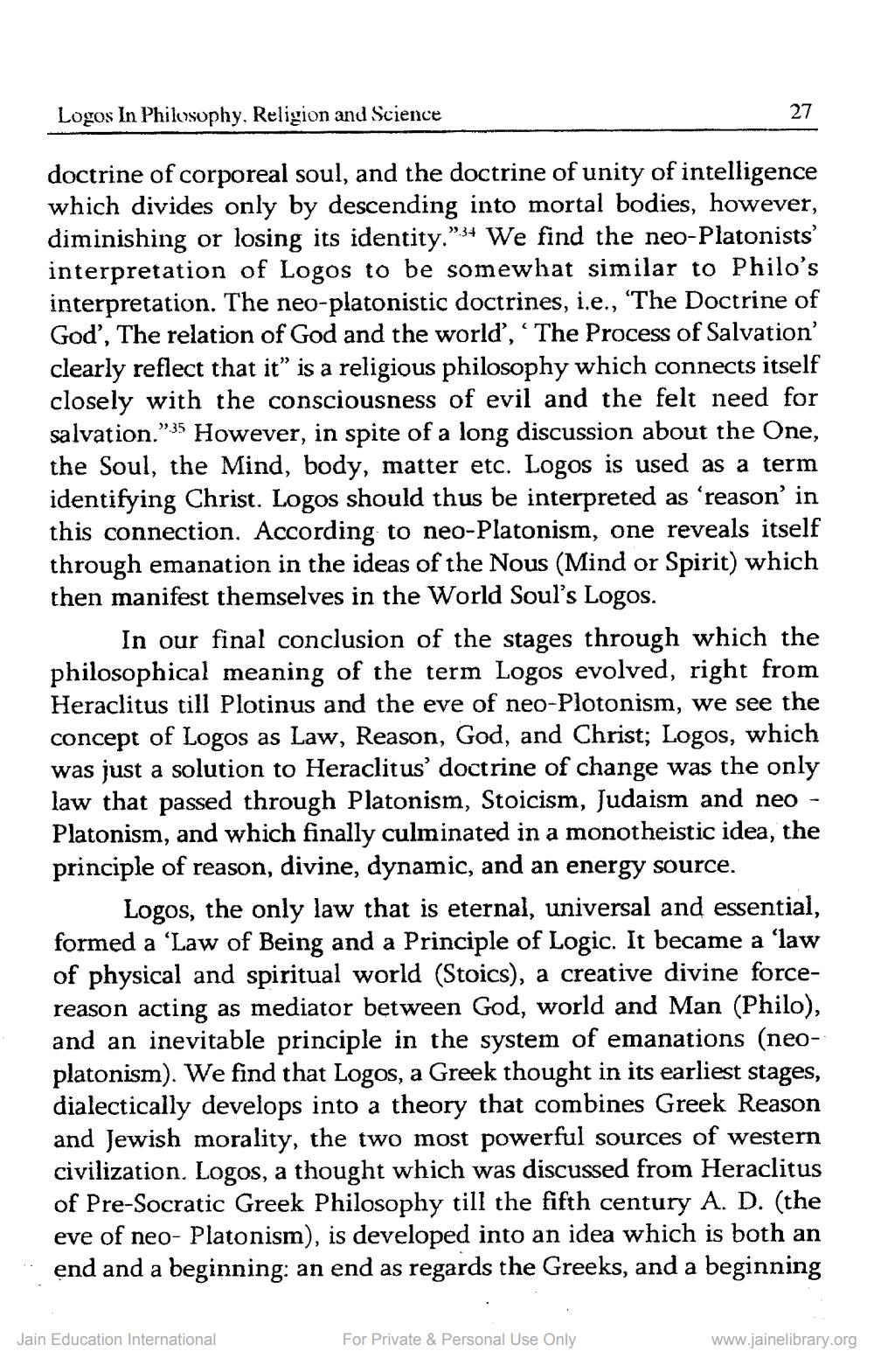________________
Logos In Philosophy. Religion and Science
doctrine of corporeal soul, and the doctrine of unity of intelligence which divides only by descending into mortal bodies, however, diminishing or losing its identity.' "34 We find the neo-Platonists' interpretation of Logos to be somewhat similar to Philo's interpretation. The neo-platonistic doctrines, i.e., "The Doctrine of God', The relation of God and the world', 'The Process of Salvation' clearly reflect that it" is a religious philosophy which connects itself closely with the consciousness of evil and the felt need for salvation."35 However, in spite of a long discussion about the One, the Soul, the Mind, body, matter etc. Logos is used as a term identifying Christ. Logos should thus be interpreted as 'reason' in this connection. According to neo-Platonism, one reveals itself through emanation in the ideas of the Nous (Mind or Spirit) which then manifest themselves in the World Soul's Logos.
In our final conclusion of the stages through which the philosophical meaning of the term Logos evolved, right from Heraclitus till Plotinus and the eve of neo-Plotonism, we see the concept of Logos as Law, Reason, God, and Christ; Logos, which was just a solution to Heraclitus' doctrine of change was the only law that passed through Platonism, Stoicism, Judaism and neo Platonism, and which finally culminated in a monotheistic idea, the principle of reason, divine, dynamic, and an energy source.
27
Logos, the only law that is eternal, universal and essential, formed a 'Law of Being and a Principle of Logic. It became a 'law of physical and spiritual world (Stoics), a creative divine forcereason acting as mediator between God, world and Man (Philo), and an inevitable principle in the system of emanations (neoplatonism). We find that Logos, a Greek thought in its earliest stages, dialectically develops into a theory that combines Greek Reason and Jewish morality, the two most powerful sources of western civilization. Logos, a thought which was discussed from Heraclitus of Pre-Socratic Greek Philosophy till the fifth century A. D. (the eve of neo- Platonism), is developed into an idea which is both an end and a beginning: an end as regards the Greeks, and a beginning
Jain Education International
For Private & Personal Use Only
www.jainelibrary.org




